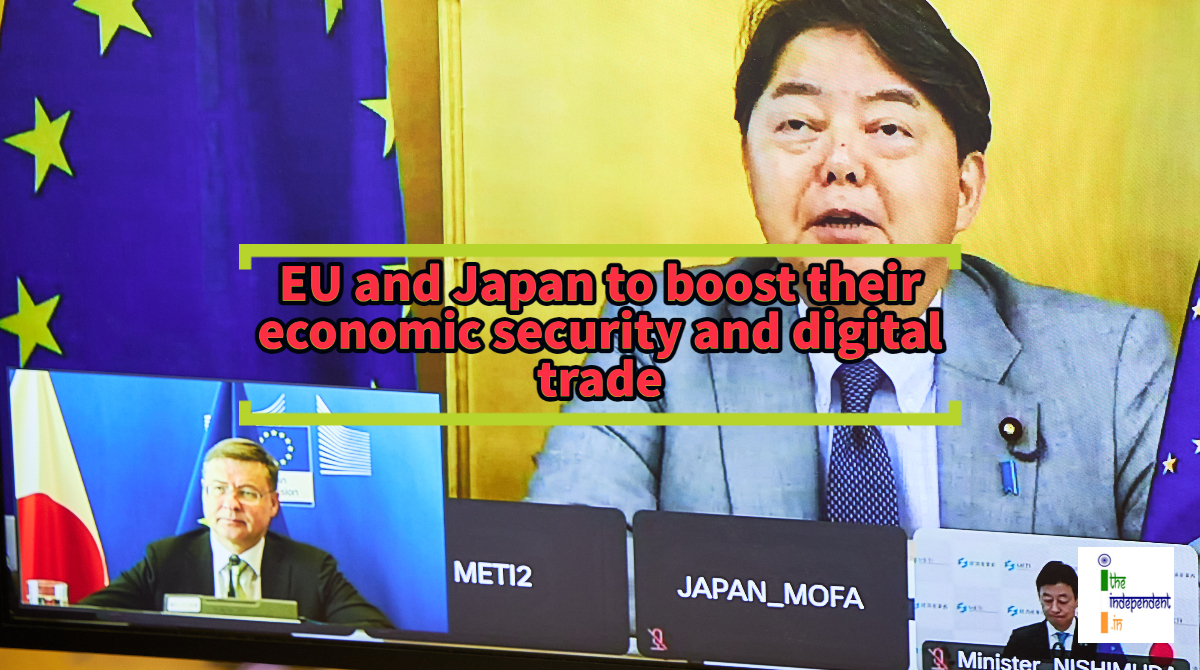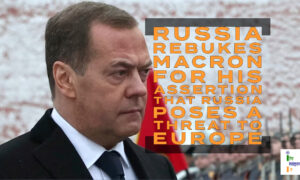
EU and Japan are going to step up collaboration on digital commerce and secure economic growth
The European Union (E.U.) and Japan today, i.e., Tuesday, June 27, 2023, held their third High-Level Economic Dialogue (HLED) with a focus on strengthening cooperation on economic security and digital trade.
The HLED was co-chaired by the Executive Vice-President and Trade Commissioner for the European Commission – Valdis Dombrovskis, with Minister of Foreign Affairs of Japan – Yoshimasa Hayashi and Minister for Economy, Trade and Industry of Japan – Yasutoshi Nishimura.
Taking it to Twitter, Dombrovskis tweeted,
#EUJapan relations are stronger than ever.
— Valdis Dombrovskis (@VDombrovskis) June 27, 2023
Today's High Level Economic Dialogue:Concluded EU-Japan Digital Trade Principles
Advanced talks on data flows
Agreed to coordinate more on #EconomicSecurity, supply chains & @wto reform
Morehttps://t.co/NqQefqr0Dr pic.twitter.com/SrSAKqr0cu
During the meeting, the two sides also agreed to expand the scope of bilateral dialogue. They concluded the E.U.-Japan Digital Trade Principles. This instrument will be key for bilateral trade and investment, as it will establish a common understanding of key issues relevant to digital trade and a joint commitment to an open digital economy. It will build on internationally agreed principles such as the G7 Digital Trade Principles and the World Trade Organization E-Commerce negotiations and it will be non-binding. The Digital Trade Principles will cover data governance, digital trade facilitation, consumer trust and business trust.
The Dialogue reaffirmed the importance of strategic cooperation between the E.U. and Japan, particularly in the current challenging geopolitical context. It also confirmed their strategic alignment on the current and future sanctions to curb Russian capabilities, along with other partners such as the United States (U.S.) and the United Kingdom (U.K.).
Both sides highlighted the necessity to cooperate at the bilateral and multilateral level on economic security and discussed possible areas of cooperation on relevant tools such as anti-coercion, export controls and investment screening, especially in view of the recently announced European Economic Security Strategy. In this respect, the Co-Chairs reiterated the importance of collaborating in the G7 anti-coercion platform, agreed under the Japanese Presidency of the G7 Summit.
The two sides agreed on the necessity to build resilient supply chains in strategic areas. The E.U. and Japan discussed the E.U. Critical Raw Material (CRM) Club and potential future developments. The initiative aims at diversifying sourcing and strengthening supply chains, and bringing together consuming countries and resource-rich countries.
The parties discussed the need for strengthening the international rules-based order by ensuring a successful 13th Ministerial Conference (MC13) of the WTO in February 2024.
E.U. and Japan also explored the possibility of enhancing bilateral cooperation under the Joint Statement Initiative (JSI) on E-Commerce and maintaining the momentum to take advantage of digital trade opportunities better. In particular, they stressed the importance of concluding the Data Flows negotiations by the autumn.










